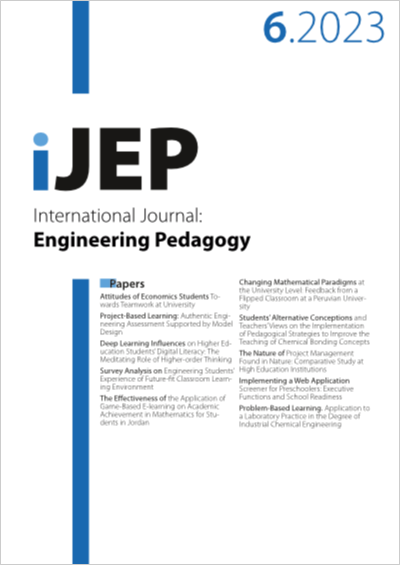Survey Analysis on Engineering Students’ Experience of Future-fit Classroom Learning Environment
DOI:
https://doi.org/10.3991/ijep.v13i6.38683Keywords:
innovative learning environment, future-fit classroom (FFC), engineering students’ perception, pedagogy, cummunication technologyAbstract
The success of every educational activity hinges on the quality of the students’ learning experiences. This survey-based study analysed engineering students’ perceptions of their learning experiences in a future-fit classroom (FFC) compared with conventional classrooms. In this study, structured interviews using online questionnaire, that were filled out by the students, was employed as a tool. Descriptive statistics for mean, coefficient of variation (CV), as well as linear correlation coefficient, were performed to evaluate the connection between their responses using the KNIME analytical software. According to the study, the typical response rate at which individuals responded to agree to questions regarding their educational experience in the FFC classroom is approximately 82 mean percentage score (MPS) with a CV of 0.196. Also, the mean response rate from the students who agreed that the University management should invest in FFCs is 86 MPS and 0.288 CV. Key insights from the further analysis include the correlation of students’ responses to interpret the determining factors for their responses. These results indicate that most of the students that participated in the study are prepared to have more experiences in the FFCs for improved technology-enhanced learning and new pedagogy. Education policymakers should consider the use of communication and information technology in university classrooms to enhance students’ engagement and improve pedagogy, which can lead to improved academic performance.
Downloads
Published
How to Cite
Issue
Section
License
Copyright (c) 2023 Benjamin Oluwamuyiwa Olorunfemi , Omowunmi Mary Longe, Fatima Mohamed Darsot

This work is licensed under a Creative Commons Attribution 4.0 International License.



